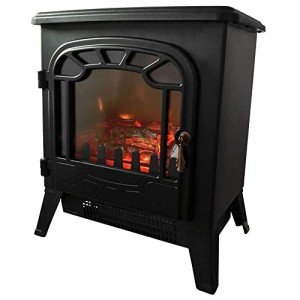A Comprehensive Guide to Buying Fireplaces in the UK
Fireplaces have actually long been a focal point in homes, supplying both heat and aesthetic appeal. In the UK, the varied environment makes fireplaces an essential feature in lots of homes. Whether one is looking for a practical heating service or a trendy focal point, understanding the different types of fireplaces and the aspects to consider when purchasing is important. This post will offer a detailed overview of the kinds of fireplaces available, considerations before purchasing, and answers to regularly asked concerns.
Kinds of Fireplaces
When thinking about the purchase of a fireplace, one should understand the large selection of choices readily available. Here's a breakdown of the common kinds of fireplaces in the UK:
| Type of Fireplace | Description | Pros | Cons |
|---|---|---|---|
| Open Hearth | Traditional fireplace; wood-burning. | Timeless appeal, good heat distribution. | Inefficient, requires more maintenance. |
| Wood-Burning Stove | Confined wood-burning unit developed for performance. | High-efficiency heating, broad range of designs. | Requires space for wood storage, might need chimney lining. |
| Gas Fireplace | Utilizes natural or propane gas for heating. | Easy to utilize, low maintenance. | May require professional installation, can be less warm than wood. |
| Electric Fireplace | Utilizes electrical energy to produce heat and flames. | Simple installation, does not need a chimney. | Generally less efficient for heating, may lack the ambiance of genuine flames. |
| Bioethanol Fireplace | Burns bioethanol for a clean-burning flame. | No venting required, modern style. | Fuel can be pricey, less heat output. |
| Pellet Stove | Uses compressed wood or biomass pellets. | Effective and eco-friendly. | Requires electricity to run, requires routine feeding and cleaning. |
Factors to consider Before Buying a Fireplace
Before devoting to the purchase of a fireplace, numerous crucial factors should be taken into account:
- Purpose: Determine whether the fireplace will serve mostly for heating or as a visual addition to the space.
- Type of Fuel: Consider the kind of fuel that best suits your needs-- wood, gas, electrical energy, or alternative options.
- Installation Costs: Assess the overall installation expense, which might consist of chimney work, flue setup, or additional modifications to the home.
- Area Availability: Check the space offered and guarantee that the chosen fireplace fits easily within the designated area.
- Design and Design: Choose a style that matches the existing decoration of your home, whether modern, rustic, or traditional.
- Maintenance: Understand the upkeep requirements associated with each type of fireplace. For example, wood-burning alternatives might need regular cleaning of flues and chimneys.
- Energy Efficiency: Assess the energy performance of the fireplace, especially if it will act as the main heating source.
- Regional Regulations: Be conscious of local regulations and standards relating to installations, particularly for wood-burning and gas devices.
FAQs about Buying Fireplaces in the UK
1. What is the best kind of fireplace for an eco-friendly home?
Answer: A wood-burning range or a pellet range can be terrific eco-friendly options, as they use eco-friendly resources. Bioethanol fireplaces are also clean and produce no harmful emissions.
2. Do I require a chimney for a gas fireplace?
Answer: Most gas fireplaces require venting to the outdoors, which can be through an existing chimney or via a direct vent system that vents through the wall.
3. How do Buy Fireplace determine the right size of fireplace for my room?
Response: The size will depend upon the space's square footage and the kind of fireplace. Usually, an expert can determine the BTUs (British Thermal Units) required based on the space size.
4. What is the typical expense of installing a fireplace in the UK?
Response: Installation costs can differ widely depending on the type of fireplace and its complexity, ranging from ₤ 500 for electric fireplaces to ₤ 5,000 for some customized setups of wood ranges or gas units.
5. Are electric fireplaces safe to use?
Response: Yes, electric fireplaces are usually very safe, as they do not produce real flames or emissions. However, similar to any electrical appliance, they ought to be used according to maker standards.
The choice to buy a fireplace in the UK is diverse and depends on numerous factors, including style, effectiveness, function, and setup needs. By understanding the different types of fireplaces and examining individual requirements and choices, one can make an informed option that enhances their home and experience. With the information supplied, potential buyers can embark on their journey to find the ideal fireplace that combines functionality with the comfort and warmth that this essential function offers.
In summary, investing in a fireplace is more than merely picking a heating option; it has to do with including character to a home while making sure comfort for years to come.

